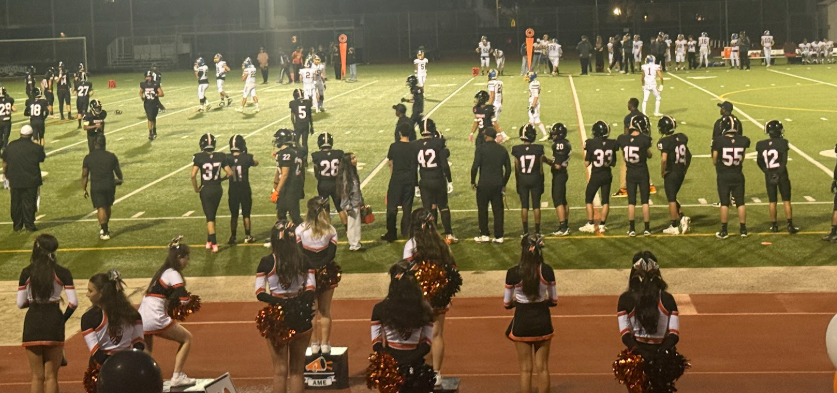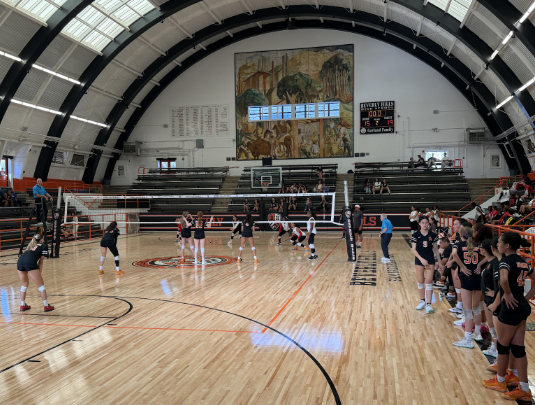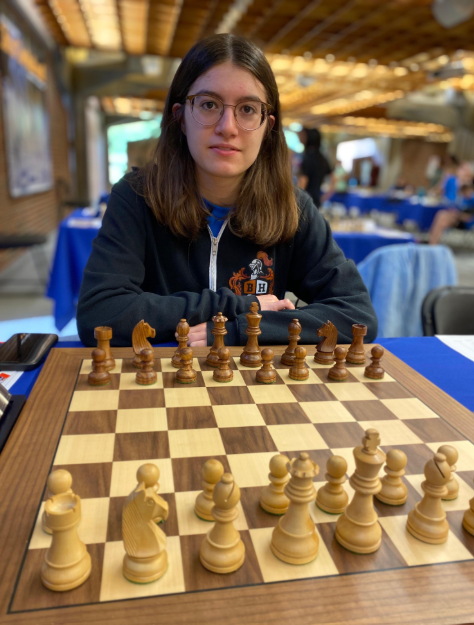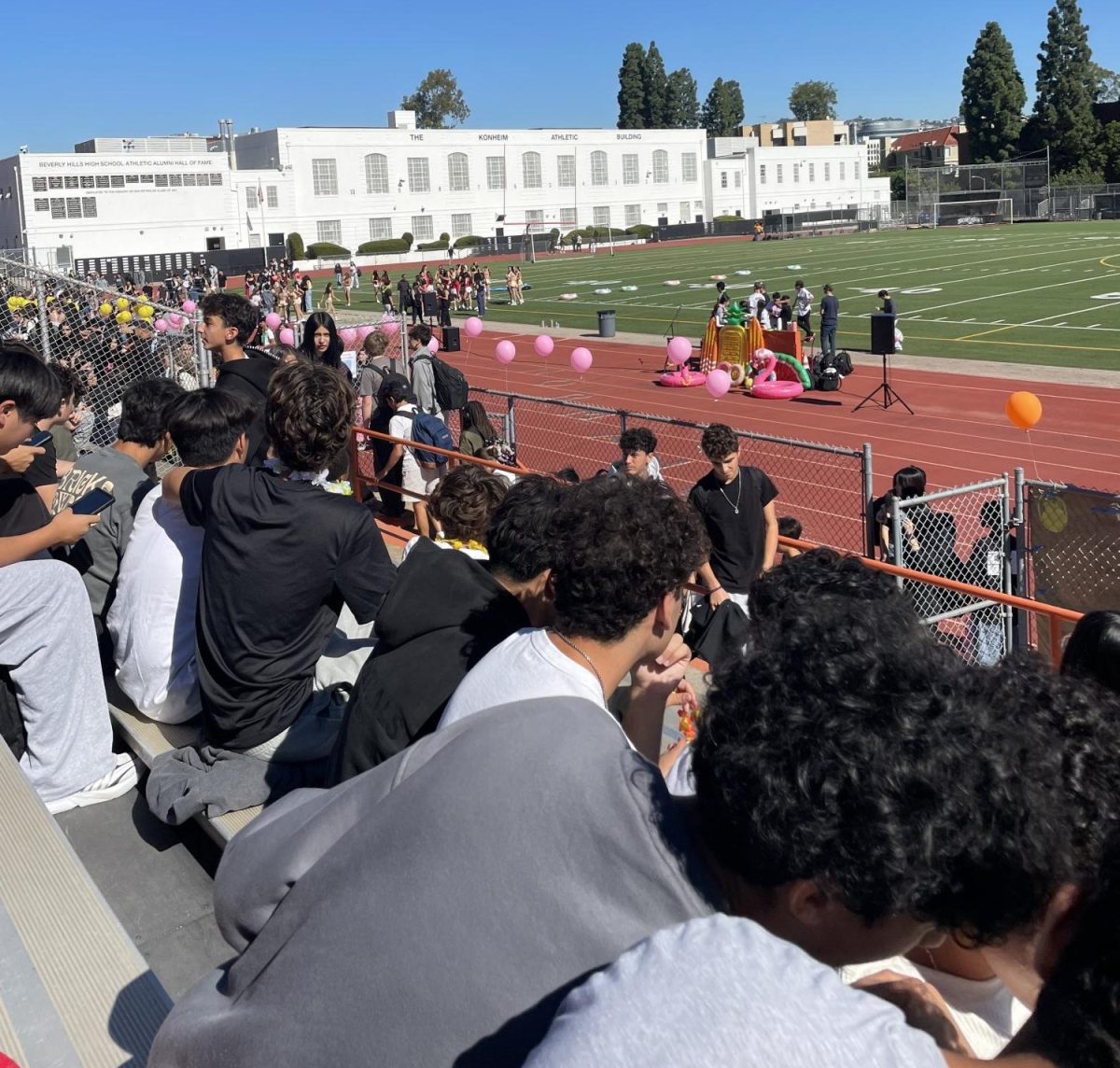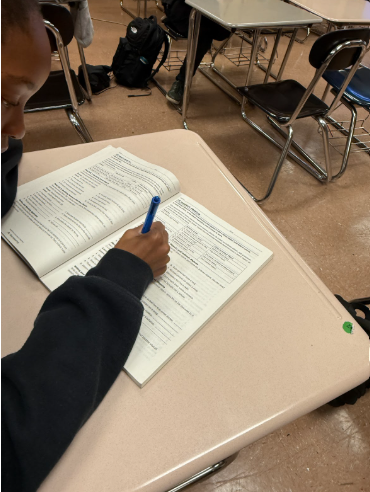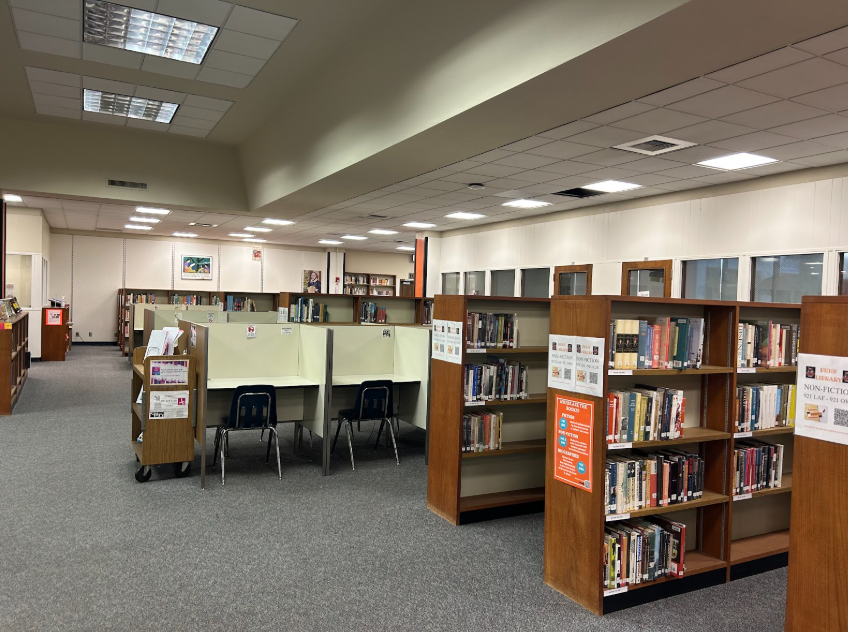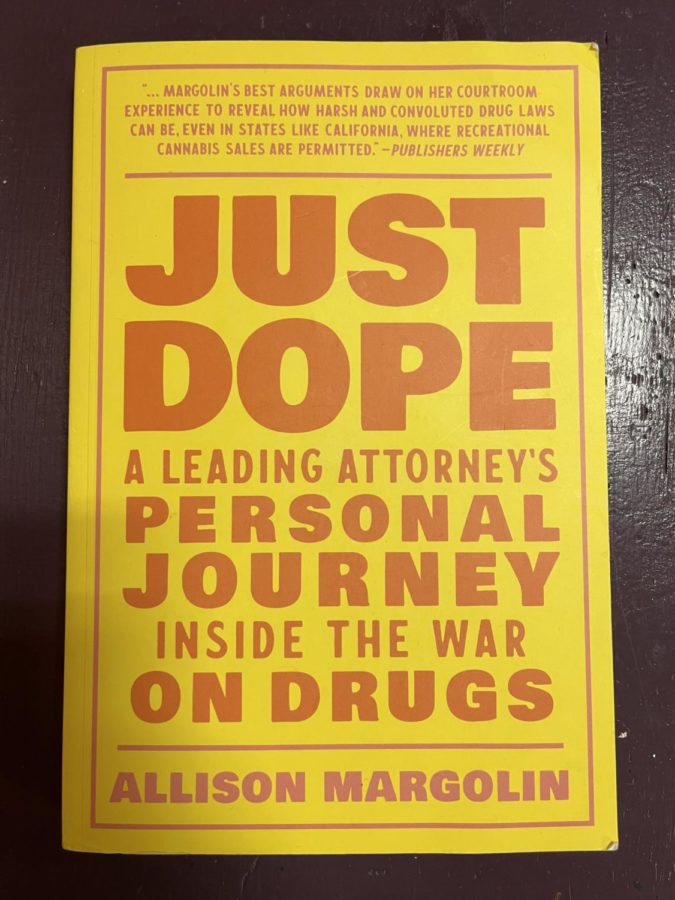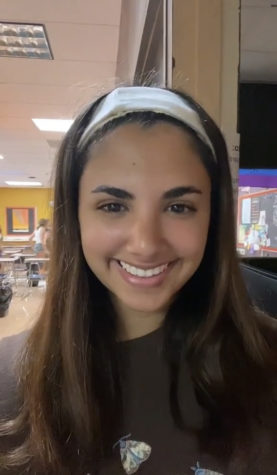Beverly alumna talks about book ‘Just Dope’
Law attorney and author Allison Margolin writes book “Just Dope”
October 20, 2022
SHAYDA: Hi, this is Beverly Highlights. I’m Shayda Dadvand, your Editor in Cheif. Episode one: Today, we’re bringing you an interview with Allison Margolin, author of Just Dope.
SHAYDA: Margolin is a former student from Beverly. She graduated in 1995. At Beverly, she was Editor in Cheif of Highlights. Then, Margolin went on to be a law attorney, where she argues issues revolving around the war on drugs.
SHAYDA: First, hi, how are you?
MARGOLIN: Oh I’m good, thank you.
SHAYDA: You mentioned that when you were around eight (years old) or so, you had kind of known you wanted to put this book together. Was writing just always something in your life?
MARGOLIN: When I was eight, I actually had my first thing published in the Beverly Hills Education Foundation. They used to have this little publication where they would pick out (work from) each grade. It’s kind of funny, the first thing I wrote, my first posting was then, and that was when I knew I wanted to write. I ended up writing this short story, then that kind of gave me the thrill of, I would say, publishing something.
SHAYDA: You wrote this, and you published this, and you did it all. In doing this–especially if you want to connect with the students here and you want this to be your demographic–what do you want students here to get from this?
MARGOLIN: I think there are a couple of lessons. First of all, you never really are told about someone who first of all has all these seeming accomplishments that are not like being an actor, but like being a lawyer or going to Harvard, that stuff. We hear about actors and and people in those kinds of businesses who are sometimes less relatable going through drug addiction. But you don’t really hear about people who are in a profession, who are still doing it, who didn’t end up having a major professional crisis going through an addiction. So the thing I think is important–there are a couple things. One is just that it can happen to anybody. And when I say addiction I mean the way that when you come home at the end of the day you’re like, “I have to do that line of drugs. I have to,” in that way that’s kind of a Pavlovian thing. You might want to call that between a habit and addiction, whatever that thing is, that feeling. I think it’s important for people to know you can have a life where you’re not abused, you don’t have anything that others might consider tragedies in it, but that you still might end up not just doing drugs, but having an issue. But even if you have an issue, meaning you’re doing it in a way that’s maybe unhealthful [sic], where you wish you weren’t doing it as much, that also doesn’t mean a black-and-white issue where you’re sober and recreational or you’re an addict. You can still then do stuff the rest of your life, even if that part of your life needs help, and it doesn’t mean you’re going to fall into irresponsibility or that you can use it as an excuse. It’s all in your mind, how you want to–it’s all within your control. I think that’s really important, that there are a couple of levels. One that because you think you’ve achieved stuff that doesn’t mean this can’t happen, and secondly if this happens, and maybe it will happen throughout your life that you abuse stuff, it doesn’t mean you’re a disaster as a person. It’s all the way you treat it. So I think those are important and they’re not usually discussed.
SHAYDA: Yeah, it’s always so right and left, black and white, more dramatic. There can be an in-between story that I feel like most people just haven’t heard.
SHAYDA: And also, what you touched upon a lot in the book, too, was that addiction doesn’t always just mean drugs or alcohol or something that we associate it with. Like, I could be addicted to romance novels and stuff like that, and I feel like that’s much more normalized. And, just first I like how much you talk about that and I like how you show that. What makes you think that it was drugs specifically that the government or politics and society focused on and put action to?
MARGOLIN: That’s a very good question, and I hope that the book shows that it’s purely racism basically. There’s really no other thing. Throughout our history– First of all, drugs weren’t criminalized by the federal levels or the state levels until the 1800’s. And the first criminalization of drugs had to do with the opression of Asian Americans in Northern California. The whole history of the drug war in our country has all been oppression from the Asian Americans to recently against African Americans, Latinos, etc. throughout the whole 20th and part of the 21st century, and things are changing a little bit, but they’re not changed yet. It continues to today, where even where you have seeming progress, there are the places that are still trying to oppress different ethnic groups where these criminal laws have remained the same. And the book, I hope, tells that story that it’s been exclusively used for that purpose.
MARGOLIN: Now that being said, the 14th Amendment, which is our Equal Protection clause, was used many times to get more law enforcement into African American communities. And that combined with all the basic racist mostives made it that this was the universe that we had.
SHAYDA: So then if your demoraphic is more toward younger audiences, what would you hope that your audience can then take from this book to then–what would you want your audience to do about this?
MARGOLIN: Okay so, at the end of the book I talked about our district attorney here, George Gascón in Los Angeles, who is very progressive. And all these people in Beverly Hills actually tried to recall him, saying that his proggressive policies were enablin the violent crime we have going on, and the various things that we see. And all the social science shows really that when you incarcerate people for too long, it becomes worse for society; they come out more violent. As our district attorney calls it, juvenilejuveline detention centers become universities of crime. These kinds of things. So, I hope that someone looks at this– (the book is) not just about drugs, it’s also about looking at things in a different way. A couple things: one is looking at progressive candidates differently, like I talked about in the book, and with more of an open-minded understanding; people should start to understand that when people do things, it doesn’t mean that something had to happen in your own lifetime. And if you see that there’s a morale, violent crime going on, you should start thinking about the system that created that and ending that. And that’s what’s going on right now, is that the drug war and the mass incarceration has created kids in foster care. A lot of people in foster care are taken for drug use. Understand that the only way for us to return a social contract is to start treating people well. Those things affect you. The United States isn’t supposed to be about locking people and throwing away the key. That’s not the society we’ve chosen to live in. We need to change the way we treat people. People often think, “Oh, why do we care about them?”I hope that (the book) gives them a different perspective.
SHAYDA: I think you’ve done a good job of that, too, and of bringing that perspective into people’s lives who wouldn’t typically even think about these issues.
MARGOLIN: Yeah that’s the hope of it, that it kind of brings people in, from the other fun parts.
SHAYDA: For the people out there, and even for the students here for example, who aren’t going to get this book and aren’t going to read it but might be listening to this podcast– and we’ve covered a lot of it already in this episode, but for the people who just aren’t going to take the time and the effort, what is the key thing you want them to leave this episode with?
MARGOLIN: You know, you should do what you’re passionate about in life, for work. I think that’s an important thing, that even if it’s something that is really weird. Like for me, it wasn’t like all the other kids in the AP classes were trying to legalize drugs, I was kind of eccentric and whatever. I think it’s good also, like one little minor thing about being an underdog, working hard. If you work hard you can manifest miracles, even if you are a drug addict or a work addict or whatever else. There are certain things you can do if you do the right thing a lot that can be really awesome. And that if you do end up in a situation where you’re doing drugs or whatever, that you have control. And it doesn’t make you a bad person, and it doesn’t make you a bad student and it’s all within your control, really, in a certain sense. Changing your situation can change your whole experience.
SHAYDA: Well, great, thank you so much.
MARGOLIN: Thank you.
SHAYDA: Thank you for listening. For more content, visit our website beverlyhighlights.com, and follow us on Instagram @beverlyhighlights. If you have any suggestions for future article or podcast topics, please email us at [email protected]. This is Shayda, Editor in Cheif of Highlights, thank you.







